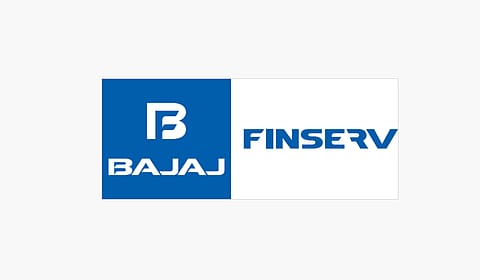Bajaj Finserv takes full control: Can it redefine India’s insurance game?
Bajaj Finserv has acquired Allianz’s 26% stake in its insurance arms for ₹24,180 crore. What’s next for policyholders, competition, and India’s insurance market?

Bajaj Finserv is set to acquire Allianz SE's 26% stakes in Bajaj Allianz Life and General Insurance for ₹13,780 crore and ₹10,400 crore, respectively. This strategic move, backed by Bajaj Group’s surplus funds, positions the company for greater independence and flexibility.
With full control, Bajaj gains the power to shape its future independently, free from external influence. But what does this mean for policyholders, competition, and the industry’s growth trajectory? Will Bajaj’s rebranding redefine its market presence or trigger new challenges? As regulatory approvals unfold over the next few months, all eyes are on Bajaj’s next move—can it capitalise on India’s booming insurance sector and solidify its dominance? The deal, which is the largest in the insurance sector, demonstrates the strength of India’s domestic capital, in an industry where capital is scarce. Take a look at the following explainer:
What are the financial terms of the deal? How much is Bajaj paying to acquire Allianz's 26% stake, and how is the valuation determined? Is it through internal reserves, debt, or external funding, or IPO?
Bajaj Finserv and Bajaj Group companies will acquire Allianz SE's 26% stakes in BALIC and BAGIC. The agreed consideration for the 26% stake each in BAGIC and BALIC is ₹13,780 crore and ₹10,400 crore, respectively. The valuation has been vetted by independent valuers. The Bajaj Group has enough surplus funds from a capital perspective.
What regulatory approvals are required for this acquisition, and what role will IRDAI (Insurance Regulatory and Development Authority of India) play in the process?
The acquisition is subject to regulatory approvals, including approvals from the Competition Commission of India, the IRDAI and several other regulatory agencies. The transaction is expected to be done in tranches and is likely to be completed in around 12-15 months.
How will this acquisition impact the operational structure of Bajaj Allianz Life & General Insurance? Will there be any major strategic or management changes? Will Bajaj look for a new strategic partner, or does the company plan to operate the insurance business independently in the long run?
Recommended Stories
Since the amendment to the Insurance Act in 2015, the companies have been under Indian control and the management has always been comprised of professionals. Once regulatory approvals for the transaction and change of name are obtained, the companies will be rebranded as Bajaj Group companies. This, the company believe, will help the insurance companies as they seek to continue their journey of benefitting from the India growth story.
Other than the re-branding, the company does not expect any impact on the operational structure due to the exit of a partner. As the companies stand today, there is little dependence on Allianz. Both insurance companies have built strong capabilities over the past two decades.
The Bajaj Group will pursue its insurance strategy independently without any partner as it has the ability and expertise to do so. After the acquisition, the companies should benefit from faster decisions on strategy enabling them to expand their businesses into new areas in a highly under-penetrated and growing market.
What impact will this deal have on Bajaj Allianz's financial health, solvency ratio, and future growth plans in both life and general insurance segments?
(INR CR)
The transaction is between shareholders and, hence, is not expected to have any impact on the solvency or financial strength of the insurance companies. The companies have one of the highest solvency margins in the sectors.
Bajaj Allianz General Insurance Company (BAGIC) is the 3rd largest private general insurer in the country, organically grown, and has been delivering industry-beating performance on both topline and bottom line consistently over the last two decades.
Bajaj Allianz Life Insurance Company (BALIC) is the 6th largest life insurance company in India and one of the largest in the private sector among those not having a captive bank as a sponsor. It has grown with in-house developed competencies and a proven track record of industry-beating performance in most aspect aspects of business.
How will this acquisition affect policyholders and existing customers? Will there be any changes in products, pricing, or services?
This will not affect the benefits or contractual arrangements with policyholders. There will be no need to reissue existing policies or for the policyholders to do anything from their side.
The companies would continue to operate as they operate today, by serving their customers and distributors in the best possible way. In terms of ethos and principles of doing business, there shall be no change in business for policyholders, partners and all stakeholders. Allianz and Bajaj are fully committed to ensuring a smooth transition in a manner that the interests of policyholders, intermediaries and other stakeholders are least affected. Bajaj Finserv and Allianz have also entered into agreements that will ensure continuity of reinsurance and other services during the transition.
What are the potential benefits and challenges for Bajaj after gaining full ownership? How does this align with their long-term business strategy in the insurance sector?
With 100% control BFS group will have enhanced flexibility in the way it runs the business. The group has developed substantial capabilities in delivering various financial services and the insurance sector is a major part of its business strategy.
With the extent of under-penetration backed by a large and growing middle class and economic buoyancy, the insurance industry is poised for substantial growth in the years to come.